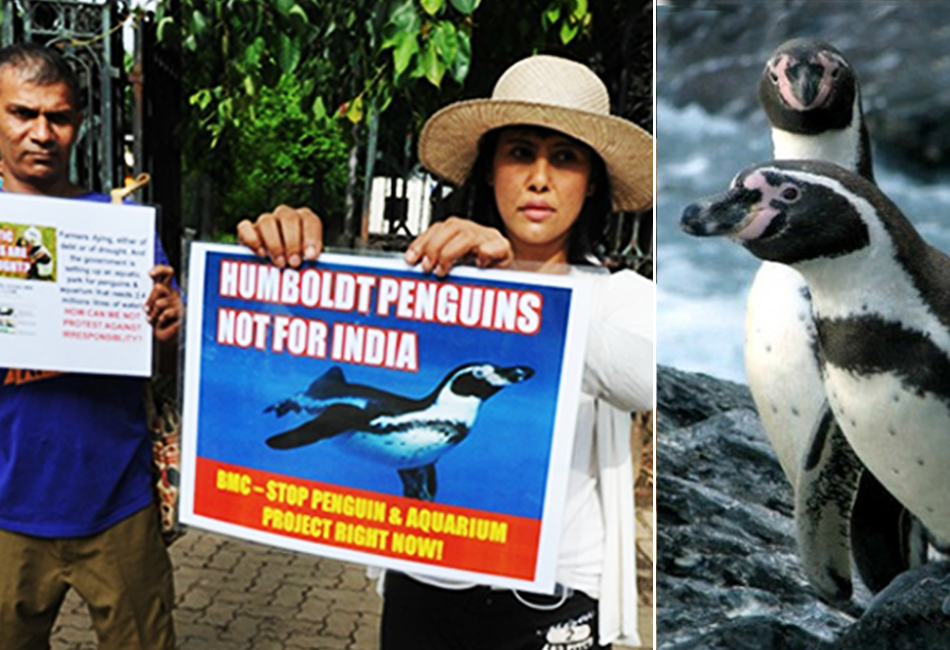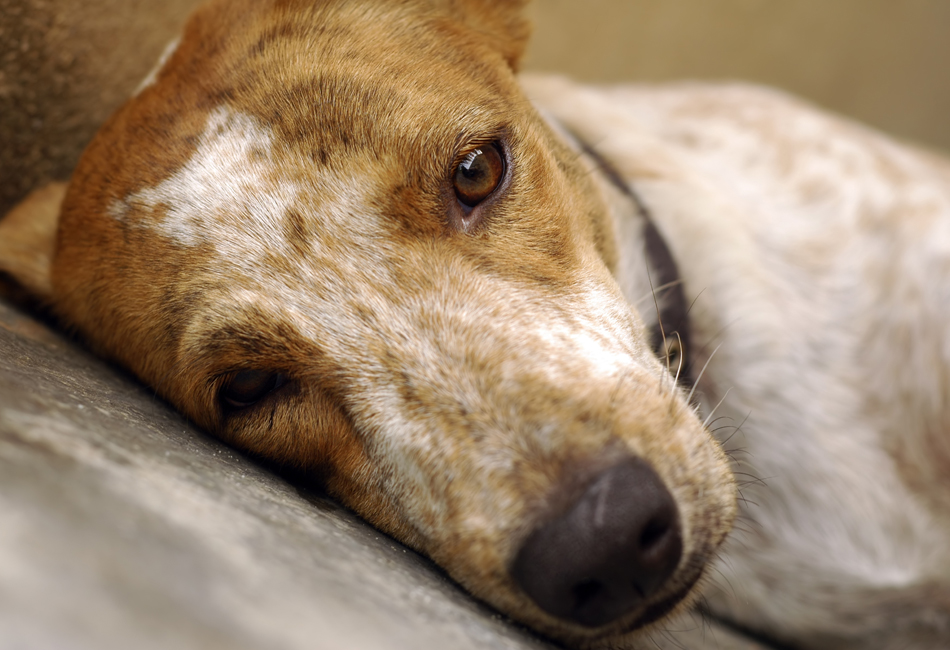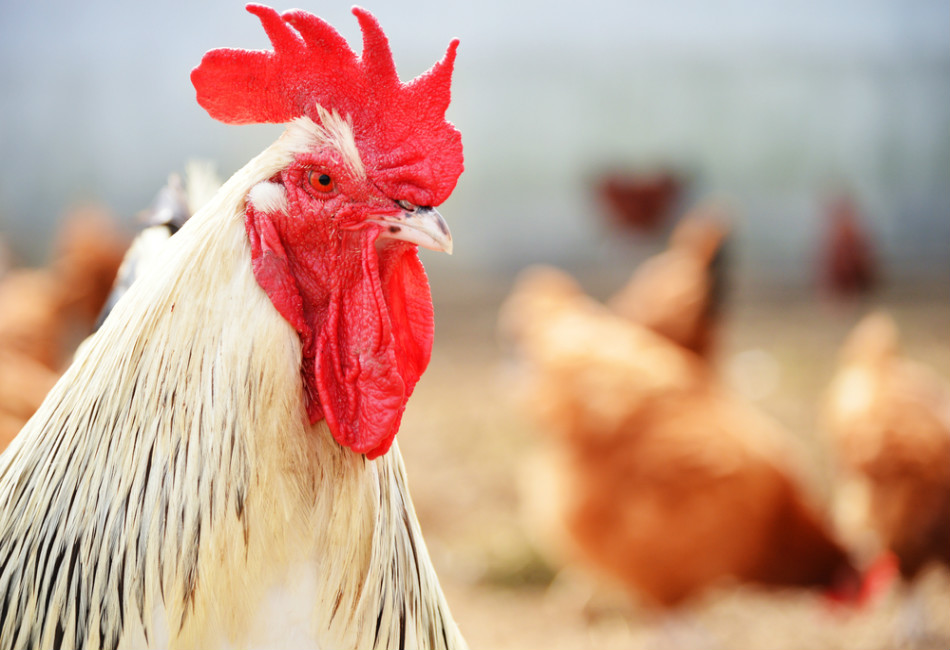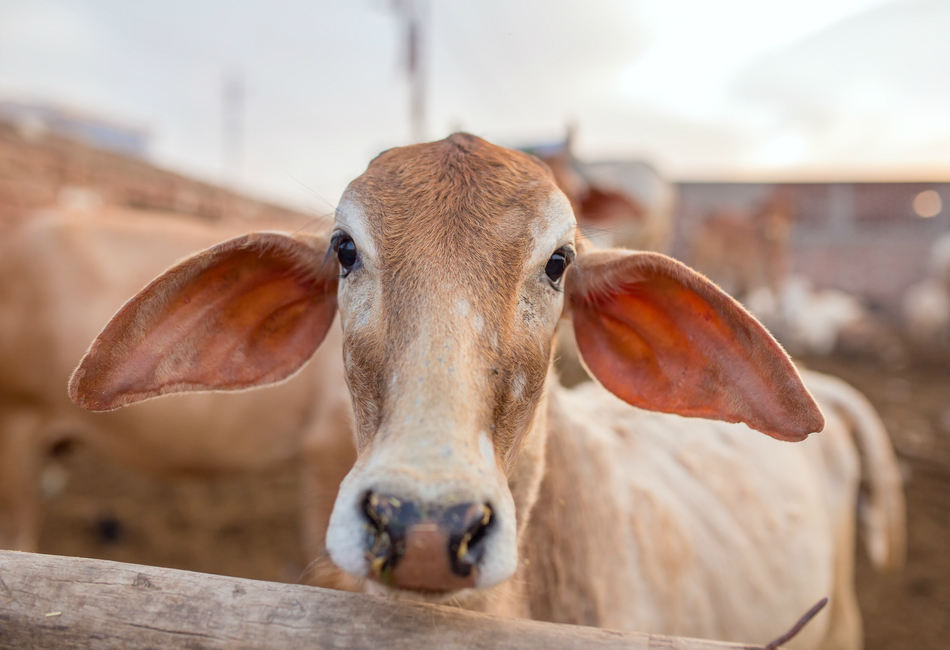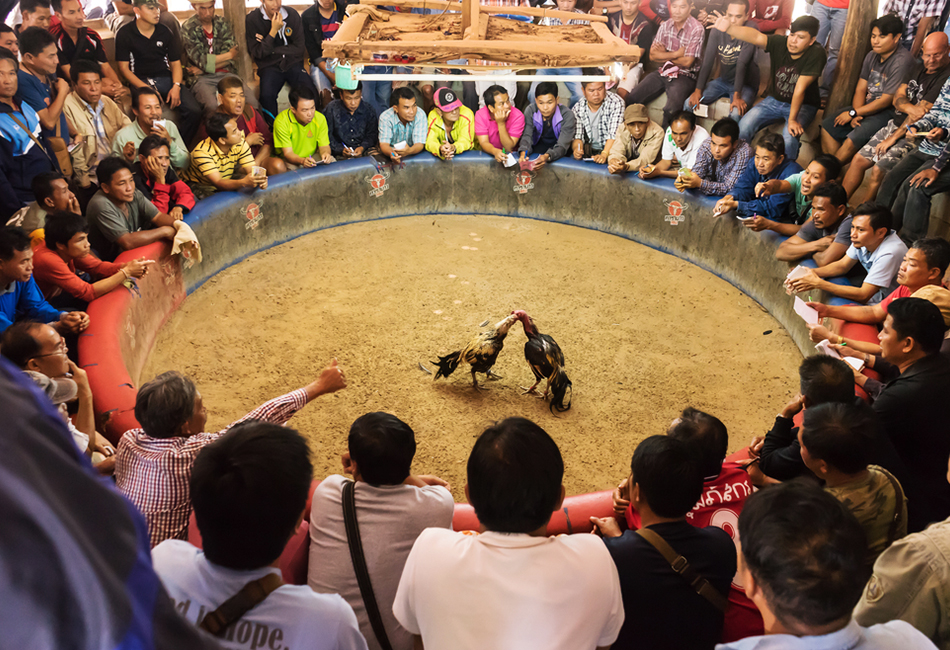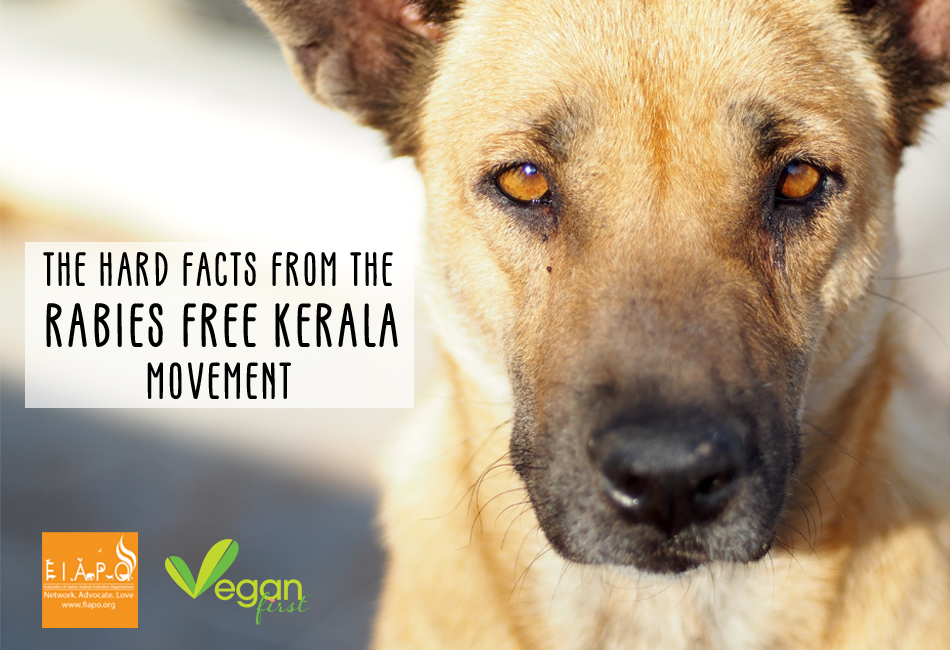Download Free Vegan Starter Kit -
1.png)
Indian Donkey Population Declines By 61% Amid Global Crisis Fueled By Chinese Donkey Hide Trades
The donkey population of India has declined by more than 61% between 2012 to 2019. A study conducted by Brooke India examines various reasons behind this decline including the possibility of illegal donkey hide trade taking place in many parts of the country under covers and hidden from the eyes of the law. This article will outline factual information so far known about the plight of donkeys, the Chinese connection, global outlook, and reasons behind this decline.
Donkeys in India
Owing to their adaptability to tough terrains and carry heavy loads, Donkeys have been domesticated, enslaved, abused, exploited, and oppressed by humans for over 6000 years. They have been used in India for transport at brick kilns and trade. It is not uncommon to see donkeys used to carry goods or soils by potters in rural India. As per the Food and Agricultural Organization (FAO) of the United Nations three distinct breeds of donkeys are “used” in the country viz; “Indian Wild” in Rann of Kutch – Gujarat, “the Kiang” in Sikkim and Laddakh, and “Indian Donkeys” in rest of India.
The total population of donkeys in India declined from 3.2 Lakhs in 2012 to 1.2 Lakhs in 2019. In the same period, Mules saw a decline from 2 Lakhs to 80,000 while the number of Horses and Ponies came down from 6.2 Lakhs to 3.4 Lakhs. Brooke India investigated various locations of donkey trades to find out the reasons behind the decline in their population. They conducted field trips, interviews, and investigative surveys in Maharashtra, Gujrat, Rajasthan, Andhra Pradesh, Bihar, Uttar Pradesh, and Nepal.
The China connection and global networks
Ejiao is gelatin obtained from the skin of donkeys. It is used in traditional Chinese medicine. Increasing demand for Ejiao has resulted in a wide network of donkey traders interested in donkey skin more than their meat and other organs. The donkey population in China has already depleted. Breeding them to meet increasing demand is not possible due to the low fertility of donkeys, long gestation period and susceptibility to injury brings overhead unviable for a profitable breeding business of donkeys. As a result, the donkey trading network has grown far beyond just China to many African countries where donkeys are often stolen, smuggled through middlemen through various administrative borders often transporting them in extreme conditions before eventually getting slaughtered. This has grown to such an extent that it is creating a global population crisis.
What about the suffering of individual donkeys?
Donkeys are intelligent animals with learning and problem-solving abilities at the same paces as dolphins and dogs. More importantly, they are sentient beings who have the capacity to experience pain, pleasure, fear and are not just aware of their emotions but also remember good and bad experiences for a long time affecting their behavior. They rightfully deserve a life free of suffering and human use. Even without the skin trade triggered by Ejiao, donkeys have been abused for transportation and have had to endure harsh labor conditions. Ejiao is adding further to the woes of these docile beings.
PETA investigation in 2017 revealed how donkeys were brutally beaten and killed for their skin. The video shows how thousands of donkeys are kept crammed in filthy concrete-floored pens, beaten with sticks, bludgeoned to the head with sledgehammers, and then their throats slit, all for their skin.
Another 2019 report by The Donkey Sanctuary showed how donkeys are transported in some African countries in extremely horrid conditions. Many are crushed underneath others during the transport. Donkeys that are injured, sick, and even those in their late pregnancies are transported to slaughter. Mares transported during the late stages of pregnancy sometimes give birth during transport or on arrival at the slaughterhouse. In many of these instances, the mares are still slaughtered and the foals are either left to die or are reportedly killed with the back of an axe.
Brooke India Investigation and Donkey Hide Trade (DHT)
While researching whether Donkey Hide Trade was among the reasons behind the reduction in the population of donkeys in India, investigators at Brooke India came across illegal trade and transport of donkeys from places like Jejuri, Maharashtra where Donkey Fair is held in January every year to Tadepalli, Andhra Pradesh where hundreds of donkeys are butchered every Sunday and Thursday, their meat sold for consumption by locals and skin taken for further trade upstream with other organs thrown in drains causing significant health hazards.
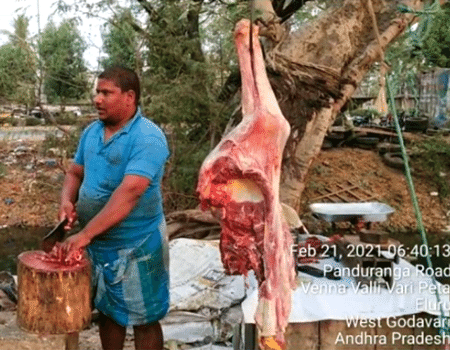
Image Source: Brooke India
A similar transport from Jaipur, Rajasthan to Dahod, Gujarat pointed to its connection with DHT. Places like Bahraich, U.P also revealed anecdotes of people poisoning donkeys for their skin. The close proximity of Bihar and U.P to the porous Indo-Nepal border form the route to take donkey hides eventually to China.
So, what are the reasons?
Reduced utility along with automation and mechanization as well as communities dependent for their livelihoods on donkey labor moving on to more stable and educated jobs are among the primary reasons for the decline with further support from theft and illegal slaughter.
The Brooke investigation found some evidence pointing to the presence of large-scale DHT and its contribution to the decline. Chinese traders visited Jejuri's donkey fair in Maharashtra demanding a constant supply of 200 donkeys per month. Butchers of Tadepalli, Andhra Pradesh were found to be very secretive of the fact that they do not dispose of donkey skin with other wasted organs. It is not uncommon to see local newspapers in U.P occasionally reporting on incidents around smuggling live mules and donkeys through the Indo-Nepalese border. Cases of poisoning donkeys have also been found.
Is this decline necessarily bad?
Most of the media reports and investigations like Brooke India carry an undertone of sorrow implying that the decline of the donkey population is bad as it negatively impacts the economy dependent on their enslavement and oppression. Although well-intentioned, primary concerns around the welfare of donkeys are driven by utilitarian motives, that donkeys are of great utility to us and so their decline in population is bad.
Reduction in numbers does not necessarily mean the extinction of species but our attitudes toward the two are similar. Both are seen by well-meaning caring humans as bad. But the view of "badness" applied to non-human population reduction or fears of extinction differs fundamentally from that when applied to humans themselves.
It is noteworthy that human concern about human extinction takes a different form from human concern (where there is any) about the extinction of non-human species. Most humans who are concerned about the extinction of non-human species are not concerned about the individual animals whose lives are cut short in the passage to extinction, even though that is one of the best reasons to be concerned about extinction (at least in its killing form). The popular concern about animal extinction is usually a concern for humans—that we shall live in a world impoverished by the loss of one aspect of faunal diversity, that we shall no longer be able to behold or use that species of animal. In other words, none of the typical concerns about human extinction are applied to non-human species extinction. - David Benatar
The declining donkey population due to the killing of individual donkeys is bad and needs to be stopped, but their utility for human purposes should not be the driver for such opposition. Decline due to automation and mechanization (similar to what happened to Horses with the advent of the automotive industry) should rather be welcomed.
LIKE THIS? READ: INSTAGRAM INTRODUCES NEW FEATURE TO FIGHT WILDLIFE CRIME
READ MORE: GOD'S OWN COUNTRY TO DOGS' OWN HELL
AUTHOR

trending
Be a Vegan First Informer
Send us buzzworthy news and updates
Explore
Contact Us
About Us
Stay Connected
Copyright ⓒ 2017-2023. VEGAN PASSION PRIVATE LIMITED. All Rights reserved.
For more information, please write to hello@veganfirst.com
Registered Office Address: 55, 2nd floor, lane 2, Westend Marg, Saidullajab, Near Saket Metro Station, New Delhi, Gadaipur, New Delhi South West Delhi, DL

2.png)

.png)
.png)
2.png)
2.png)
2.png)


1.png)

